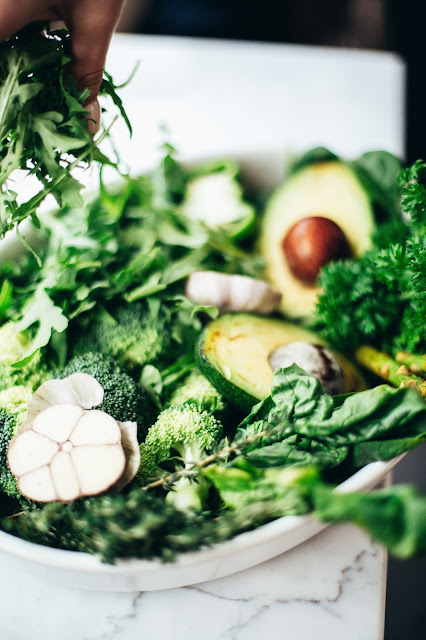Are Frozen Vegetables Healthy? A Crash Test With Fresh Products
Frozen foods are gaining value! Science confirms that they are high-quality products and you can have them on your table without guilt - at least when you do not have the alternative of fresh.
You do not need to have a coronavirus pandemic to fill the freezer with frozen vegetables. These popular "bags" are a very common choice for a freshly cooked and nutritious vegetable-based meal for most of us. Of course, fresh vegetables also have their place in the table and in our diet. However, they are not always available at home and sometimes we wonder if a fresh vegetable from the other side of the Earth or a frozen one from the Peloponnese is better. These questions need answers from people they know.
That's why we put them to the dietitian-nutritionist Sofia Konti and the food technologist Argyro Petropoulou. Their answers will help you make the best choices for you and your family.
Fresh or frozen? Which is healthier?
In a recent study published in the Journal of Food Composition and Analysis, researchers compared fresh and frozen products in terms of their nutritional value. The differences were minimal or absent. To be precise, research has shown that fresh produce after 5 days in the refrigerator has a lower nutritional value compared to frozen. And to make it even harder to answer what is healthier, the type of vegetables you buy plays a role in whether you should prefer them in their fresh or frozen version.
A study in the Journal of Agricultural and Food Chemistry found that fresh peas had more riboflavin than frozen, but frozen broccoli had more of this B-complex vitamin than fresh. The researchers also found in their study that frozen corn and green beans had more vitamin C than their fresh equivalents.
When Do Fresh Products Lose Their Nutrients?
The harvesting process can be responsible for the loss of nutrients from fresh vegetables. The freshness of a tomato or a strawberry is not measured from the moment it reaches the grocery store shelf but begins immediately after harvest. Once a fruit or vegetable is harvested, it begins to release heat and lose water (a process called respiration) affecting its nutritional quality. Then the pest control sprays, transport, handling, and time contribute to the loss of some of the original nutrients of the fresh products as soon as they arrive at the store. And the more these products are processed, the more of their nutritional value they lose. A study published in the scientific journal Food Chemistry found that fresh salads in packaged bags,
Why prefer frozen products?
Frozen products are rewarded by consumers for many reasons: a key advantage is that they are available all months of the year. In addition, there is a variety of products, they provide sufficient information on the packaging, are practical to use, and are made from excellent raw materials. Equally important
is that the consumption of frozen products helps to reduce waste due to their long average lifespan, about 15-18 months, so
we do not throw away so much spoiled food.
Are frozen vegetables healthy and how safe are they?
At the industrial level, food first goes through the freezing tunnel to be frozen. According to the official directive, each point of the food must reach -18 ° C in the shortest possible time. Thus, even with the right packaging and storage conditions, foods retain all their organoleptic characteristics.
Proper observance of production, packaging, and preservation procedures guarantees the hygiene and safety of frozen food. All the microorganisms that can be present in food, when found at temperatures below -10 ° C, are inactivated and so we do not have spoilage and degradation of products, thus increasing their lifespan. At these temperatures the microorganisms are not destroyed, they just "sleep", and for this reason, special attention must be paid to the thawing of frozen products. It is important to note that in the case of frozen vegetables the use of preservative additives is not the rule.
Mainly, the vegetables are frozen immediately in their natural form or preceded by steam boiling - the so-called "bleaching" of the vegetables - in order to stop any enzymatic activity that may cause some deterioration.
Steamed frozen vegetables
According to research in the Journal of Agricultural and Food Chemistry, steam cooking is the best way to preserve nutrients in many foods, such as broccoli. This cooking method increases the levels of antioxidants, B vitamins, and phytochemicals, such as carotenoids.
How to keep fresh vegetables longer:
- Store these in your refrigerator drawer: Apple, berries, broccoli, carrot, eggplant, peppers, lettuce, cucumber, green salads
- Keep out of the freezer (not cut): Tomato, banana, potato, onion, melon, watermelon, small seasonal fruits

